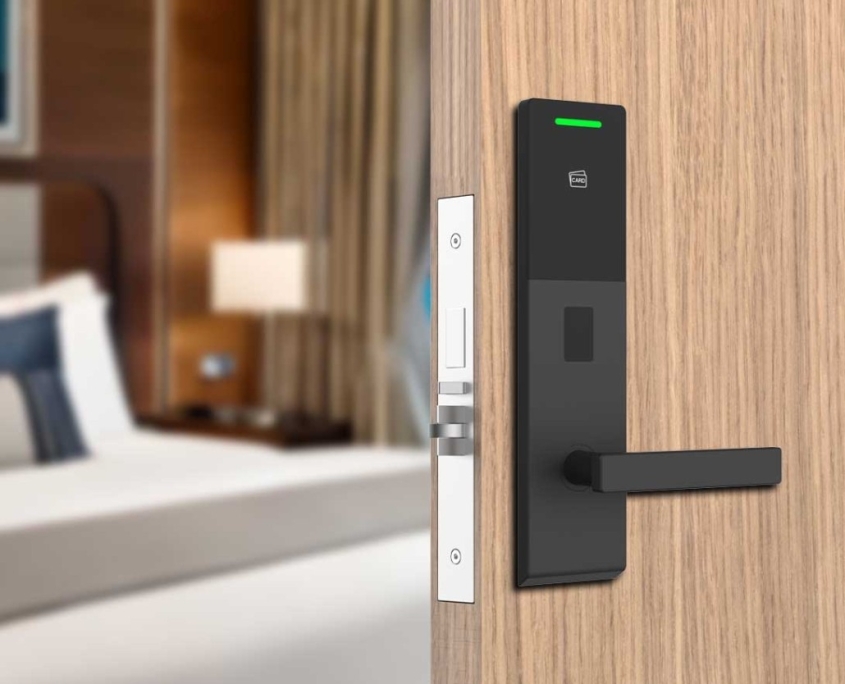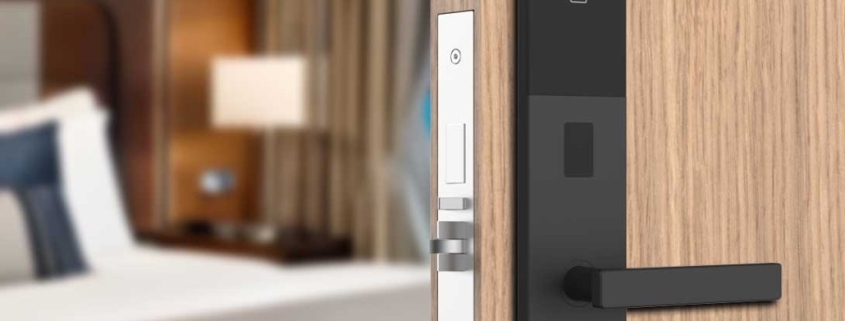How Does a Bluetooth Smart Lock Work?
In today’s connected world, smart home technology is becoming increasingly popular, and Bluetooth smart locks are at the forefront of this trend. These innovative devices offer convenience, security, and flexibility, allowing homeowners to control access to their homes with just a smartphone. But how exactly do Bluetooth smart locks work? In this article, we’ll break down the technology behind these locks, their benefits, and what to consider before installing one.
What Is a Bluetooth Smart Lock?
A Bluetooth smart lock is an electronic locking device that uses Bluetooth wireless technology to communicate with a smartphone or other authorized device, eliminating the need for traditional keys. Instead of fumbling for keys, users can unlock their doors with a tap on their phone, a voice command, or even automatically when they approach the door.
Unlike Wi-Fi-enabled smart locks, which connect to the internet for remote access, Bluetooth locks typically operate within a short range (usually up to 30-50 feet). However, some models integrate both Bluetooth and Wi-Fi for extended functionality.
How Does a Bluetooth Smart Lock Work?
1. Pairing the Lock with a Smartphone
The first step in using a Bluetooth smart lock is pairing it with a smartphone or tablet. This process usually involves:
- Downloading the lock’s companion app.
- Putting the lock into pairing mode (often by pressing a button on the device).
- Following the app’s instructions to establish a secure Bluetooth connection.
Once paired, the smartphone becomes a “digital key,” allowing the user to lock and unlock the door via the app.
2. Authentication & Encryption
Security is a top priority for smart locks. Bluetooth smart locks use Advanced Encryption Standard (AES) to ensure that communication between the phone and the lock is secure. When a user attempts to unlock the door:
- The phone sends an encrypted signal to the lock.
- The lock verifies the signal’s authenticity.
- If authorized, the lock’s motorized mechanism engages, unlocking the door.
Some locks also support two-factor authentication (2FA), requiring a PIN or fingerprint in addition to the Bluetooth signal for extra security.
3. Keyless Entry Methods
Bluetooth smart locks offer multiple ways to unlock a door:
- Smartphone App Control: Users can lock/unlock the door manually via the app.
- Auto-Unlock (Proximity-Based): The lock detects when the user’s phone is nearby and unlocks automatically.
- Voice Commands: If integrated with smart assistants like Amazon Alexa, Google Assistant, or Apple HomeKit, users can say, “Hey Google, unlock the front door.”
- Temporary Access Codes: Homeowners can generate time-limited digital keys for guests, cleaners, or service workers.
4. Power Source & Backup Options
Most Bluetooth smart locks run on batteries (AA or CR123A), with low-battery alerts sent to the user’s phone. Some models include a physical key override or a 9V battery backup terminal in case of power failure.

Benefits of Bluetooth Smart Locks
1. No More Lost Keys
Forget about getting locked out or making spare keys. As long as you have your phone, you can unlock your door.
2. Remote Access (with Hub Integration)
While Bluetooth alone doesn’t support remote unlocking, some locks (like August Smart Lock) work with a Wi-Fi or Bluetooth-to-Wi-Fi bridge, allowing users to control the lock from anywhere.
3. Enhanced Security Features
- Activity Logs: Track who enters and exits your home.
- Tamper Alerts: Receive notifications if someone tries to force the lock open.
- Auto-Lock: The door can lock itself after a set period.
4. Easy Installation
Many Bluetooth smart locks are designed to fit over existing deadbolts, making installation a simple DIY project.
Potential Drawbacks & Considerations
1. Limited Range
Bluetooth-only locks require the user to be near the door (within ~30 feet). For remote access, a Wi-Fi bridge is needed.
2. Battery Dependency
If the batteries die and there’s no backup keyhole, you could be locked out. Always check battery levels.
3. Compatibility Issues
Not all smart locks work with every door type. Check measurements and compatibility before purchasing.
Final Thoughts
Bluetooth smart locks provide a seamless, secure, and modern way to manage home access. By leveraging smartphone technology, encryption, and smart home integrations, they eliminate the hassle of physical keys while enhancing security.
If you’re considering upgrading to a Bluetooth smart lock, look for models with strong encryption, backup entry options, and smart home compatibility. With the right lock, you can enjoy keyless convenience and peace of mind.
Do you want to know more about Bluetooth smart locks? Welcome to leave a message in the comment area to contact us!









